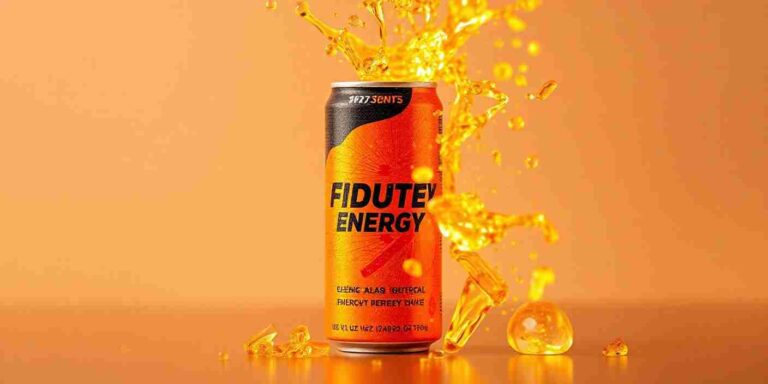Is Fresca Bad For You? Find Out Now!
Is Fresca Bad For You? Fresca isn’t inherently bad for you, but it does come with some considerations. As a popular citrus-flavored soda, it’s often seen as a refreshing alternative to sugary drinks.
However, if you’re watching your sugar intake or seeking healthier beverage options, it’s crucial to look closer at what’s in that can.
While Fresca is calorie-free and contains no sugar, it relies on artificial sweeteners for flavor. These ingredients can spark debate about their long-term effects on health.
In this article, you’ll explore the pros and cons of drinking Fresca so you can make an informed choice about whether it’s right for your lifestyle.
Key Takeaways
- Fresca is calorie-free and sugar-free, making it a popular choice for those seeking low-calorie beverage options.
- The drink relies on artificial sweeteners like aspartame and acesulfame potassium, which may raise health concerns with long-term consumption.
- While Fresca offers a refreshing taste, its acidity can harm dental health by eroding tooth enamel.
- Drinking Fresca could potentially lead to increased cravings for sugary foods, impacting weight management negatively.
- It’s essential to monitor any adverse reactions or sensitivities when consuming Fresca due to its various ingredients.
- When comparing beverages, consider factors such as ingredient transparency, taste profile, and potential health impacts of sweeteners used.
Overview of Fresca
Fresca is a grapefruit-flavored soft drink created by The Coca-Cola Company. Introduced in the United States in 1966, it has gained popularity as a sugar-free and calorie-free beverage choice.
The drink originally started with different sweeteners, transitioning from cyclamates to saccharin, and now contains aspartame and acesulfame potassium.
Ingredients and Health Implications
Fresca includes artificial sweeteners like aspartame and acesulfame potassium. These ingredients are approved by regulatory agencies such as the FDA.
While these sweeteners are generally safe for most people when consumed in moderation, they may be linked to some health concerns.
Studies suggest potential risks include effects on obesity levels, glucose intolerance, insulin intolerance, and changes in gut microbiota.
- Artificial Sweeteners: As mentioned, Fresca uses aspartame and acesulfame potassium.
- Calorie-Free Option: This makes it appealing for those looking to reduce calorie intake.
- Potential Risks: Some studies indicate health risks associated with long-term consumption of artificial sweeteners.
While Fresca offers a zero-calorie beverage option that many enjoy, it’s crucial to consider how its ingredients might affect your health over time.
Ingredients in Fresca
Fresca contains a variety of ingredients that contribute to its unique flavor and characteristics. Understanding these ingredients helps you make informed choices about your beverage options.
Sweeteners Used
Fresca uses aspartame and acesulfame potassium as sweeteners. These are artificial sweeteners approved by regulatory agencies like the FDA.
Originally, Fresca contained cyclamates, but they were banned in 1969 due to potential health risks, including bladder cancer concerns.
Although later studies refuted this link, the switch to saccharin occurred next. Saccharin also raised similar worries regarding cancer in animal studies, but those claims faced dispute as well.
Additional Additives
Fresca includes various additional additives that enhance its flavor and stability:
- Carbonated Water: Provides fizz.
- Citric Acid: Adds tartness.
- Concentrated Grapefruit Juice: Offers natural fruit flavor.
- Potassium Citrate: Balances acidity.
- Potassium Sorbate: Acts as a preservative.
- Acacia Gum: Thickens the drink.
- Natural Flavors: Enhances taste without specific identification.
- Glycerol Ester of Wood Rosin,
- Potassium Benzoate,
- and both Calcium Disodium EDTA & Carob Bean Gum serve various purposes such as preservation and texture improvement.
Knowing these ingredients allows you to weigh their impact on your health while enjoying Fresca’s refreshing taste.
Health Impacts of Drinking Fresca
Fresca contains several ingredients that can affect your health negatively. Understanding these impacts is vital for making informed choices about consuming this beverage.
Effects on Weight Management
Drinking Fresca might seem like a good option for weight management due to its zero calories. However, artificial sweeteners like aspartame and acesulfame potassium may lead to cravings for more sugary foods.
Studies show that people who consume diet sodas can experience an increase in body mass index (BMI) over time.
Research indicates that those who drink diet beverages regularly have a 41% higher chance of being overweight compared to those who don’t.
Impact on Dental Health
Fresca’s acidity poses risks to dental health. The high levels of citric acid can erode tooth enamel, leading to cavities and sensitivity.
A study found that soft drinks with similar acidity can cause significant enamel loss within just a few days of frequent exposure. Maintaining strong teeth requires limiting acidic drinks like Fresca.
Potential Allergens and Reactions
Fresca includes various ingredients that might trigger allergies or sensitivities in some individuals. For example, brominated vegetable oil (BVO) has been linked with allergic reactions in specific populations.
Additionally, some people report headaches or gastrointestinal issues after consuming products containing aspartame.
Monitoring how your body reacts after drinking Fresca is essential if you suspect any food sensitivities.
Understanding the potential health impacts helps you make better decisions regarding your beverage choices while considering both short-term effects and long-term consequences associated with consuming Fresca.
Comparing Fresca to Other Soft Drinks
Fresca stands out among soft drinks due to its sugar-free and calorie-free nature. It contains aspartame and acesulfame potassium, both artificial sweeteners that provide a sweet taste without the calories found in regular sodas.
Sweetener Comparison
- Aspartame: Found in Fresca, this sweetener has stirred debate over health concerns, particularly regarding long-term effects.
- Acesulfame Potassium: Another ingredient in Fresca, acesulfame potassium is often used alongside aspartame to enhance sweetness.
Other diet sodas may also use these sweeteners or alternatives like sucralose or stevia, but their safety profiles vary.
For instance, the World Health Organization (WHO) considers moderate consumption of aspartame safe for most people.
However, drinking excessive amounts—like more than a dozen cans daily for someone weighing 150 pounds—could raise health risks.
Caloric Content
Fresca offers a low-calorie option compared to regular soft drinks:
| Drink Type | Calories per 12 oz |
|---|---|
| Regular Soda | 150+ |
| Diet Soda (e.g., Fresca) | 0 |
Regular sodas contain significant calories from sugar, which can contribute to weight gain and other health issues. In contrast, Fresca provides you with a refreshing beverage without adding calories.
Taste Profile
Taste plays an essential role in your beverage choice:
- Fresca: Known for its grapefruit flavor, it appeals to those seeking something different from traditional colas.
- Other Diet Sodas: Many mimic classic cola flavors or citrus tastes but might not offer unique options like grapefruit.
Choosing between beverages often comes down to personal preference regarding flavor and dietary needs.
Ingredient Transparency
Understanding what’s inside your drink matters:
- Fresca lists its ingredients clearly on the packaging, helping consumers make informed choices.
- Other brands may not always disclose all components clearly or may include additives that some individuals prefer to avoid.
You can compare ingredients by reading labels carefully before deciding what fits best into your lifestyle.
When comparing Fresca with other soft drinks, consider factors such as calorie content, sweeteners used, taste preferences, and ingredient transparency.
These elements help guide you toward making healthier beverage choices while enjoying flavorful options.
Conclusion
Fresca can be a refreshing choice for those seeking a low-calorie beverage without added sugar. However, it’s essential to consider artificial sweeteners and their potential health implications.
Understanding what you’re consuming helps you make informed decisions about your drink choices.
If you’re mindful of ingredient transparency and aware of how different components impact your health you’ll feel more confident in enjoying Fresca or opting for alternatives that suit your lifestyle better.
Ultimately it’s all about balance and making choices that align with your health goals.
Frequently Asked Questions
What is Fresca soda?
Fresca is a sugar-free, calorie-free grapefruit-flavored soda produced by The Coca-Cola Company. It is sweetened with artificial sweeteners like aspartame and acesulfame potassium.
Are there health risks associated with drinking Fresca?
While Fresca contains no calories or sugars, it uses artificial sweeteners that some studies suggest may have potential health risks. It’s essential to consume such beverages in moderation and stay informed about their ingredients.
How does Fresca compare to other soft drinks?
Fresca stands out for its unique grapefruit flavor and low-calorie content compared to traditional sugary sodas. Many diet sodas also offer low-calorie options but may vary in taste and sweetness due to different ingredients.
What are the main sweeteners used in Fresca?
Fresca is primarily sweetened with aspartame and acesulfame potassium. These artificial sweeteners provide a sweet taste without adding calories, although their safety profiles can be debated.
Why is ingredient transparency important for beverages like Fresca?
Ingredient transparency allows consumers to make informed choices about what they drink. Understanding the components of beverages like Fresca helps individuals consider factors like health effects, caloric content, and personal dietary preferences when selecting drinks.






